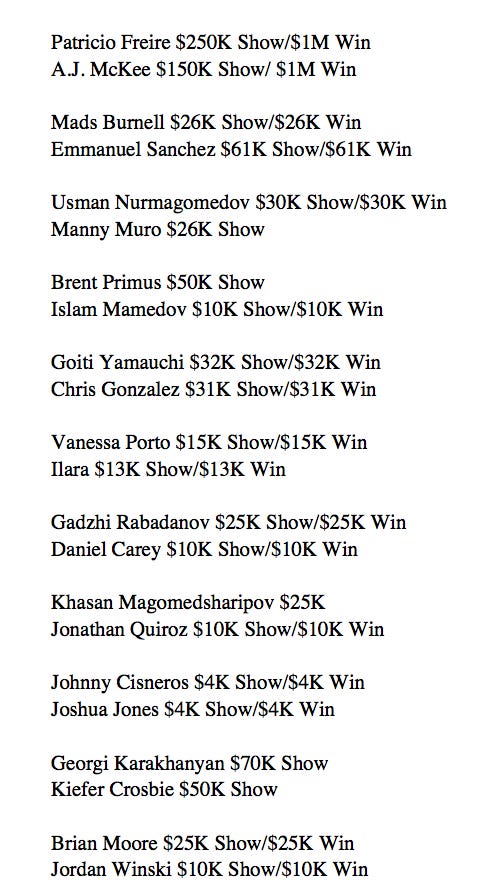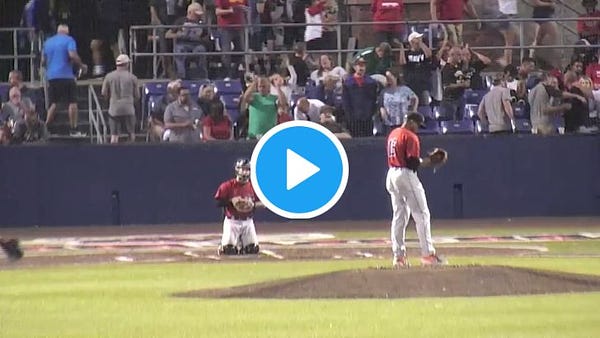Rodgers and Small Markets and More
This week’s Finding the Edge is structured a bit differently than usual. I am going to briefly touch on a range of stories from the past week that have interesting implications moving forward.
Aaron Rodgers and Small Markets
To consistently compete, teams must land superstars. How can a small market team attract the best players in a league? Offer the most money? Twenty years ago, the 10th highest paid player in the NBA earned $14.3M per year. Today, the 10th highest paid player in the NBA earns $39.3M per year. Over time, I’d theorize these gradual increases in salary caps will hurt small/mid-market teams.
Modern stars (especially in the NBA) will earn over $500M during their careers, which does not include endorsements deals. “Do you want $40M per year to live in Cleveland or $32M per year to live in Miami?” - no offense to Cleveland readers…At some level, today’s athletes are earning so much money that they are going to prioritize other factors over an extra $5M-$10M, which would not materially impact their lives even though it would have 20 years ago.
The best current example is the Dallas Mavericks’ attempt to retain Luka Doncic. The Mavs drafted him in 2018, he is a 22-year-old phenom, and there is already conversation around his potential departure from the team. How do you keep him from leaving Dallas for Los Angeles/Miami/New York/etc.? Twenty years ago, money was the answer. Into the future, money will not be enough. Small/mid-market organizations will need to cater to superstars’ every request and hope that players decide to stay.
The Green Bay Packers did not do that. In case you missed it, reigning MVP Aaron Rodgers gave a fascinating, candid press conference last week in which he explained his rationale for holding out on the Packers until arriving at the facility last week for training camp. Here is the link to the entire press conference, which is an entertaining listen.
Here’s a snipping from the press conference in which Rodgers references his value to the organization:

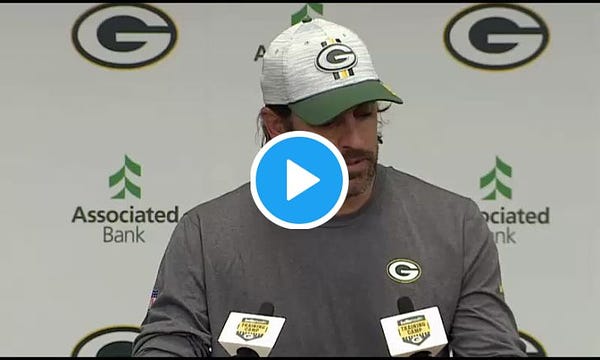
To summarize the press conference, Rodgers wants a stronger voice in organizational decisions. He wants to be included in discussions that “concern his ability to do his job,” like personnel decisions. He suggests that he has a unique perspective on achieving success, and he feels aggrieved that his perspective was not valued. Ultimately, the Packers made a couple concessions and Rodgers reported to training camp.
His sudden appearance at training camp should not have surprised anyone. NFL contracts are not guaranteed, and players are fined $50,000 for each day they do not show up to training camp. Rodgers had threatened to retire, but he would have owed $30M back to the Packers if he retired (this podcast explains, starting at 14:35 timestamp). Retirement was probably never a legitimate consideration.
Contractually, NFL front offices have far more leverage over players than NBA front offices since NBA players have guaranteed contracts. But even without leverage, superstars like Rodgers are wielding their influence to gain decision-making power and favorable contract terms. From a strategy perspective, the front office/superstar dynamic in small markets will be compelling to observe into the future. “You need me and I’m going to leave” presents a challenge, especially when it is true.
DeShaun Watson
Speaking of avoiding $50k fines, DeShaun Watson reported to Houston Texans training camp amidst credible allegations of sexual assault. There are more than 20 civil lawsuits and 10 police complaints against Watson. Unless he is placed on the NFL Commissioner’s Exempt List, Watson can participate in all team activities.
Prior to the sexual assault issues, Watson had demanded a trade. Houston is beginning to consider trade offers. There is no expectation that Deshaun Watson will ever take another snap for the Houston Texans. Nobody really wants Watson at training camp, including Watson. He’s just avoiding a fine:


This will be an intriguing situation to follow. What will teams offer for Watson in the trade market? He is one of the best quarterbacks in the league and at age 25, he’s entering his prime. He also has credible allegations of disgusting illegal behavior, which is subject to league discipline (and maybe jail time!).
Covid-19
Many vaccinated and unvaccinated NFL personnel are testing positive for Covid-19:

Last week, the NFL had announced that players will not get paid for games that are unable to be rescheduled after Covid-19 outbreaks on teams. Positive tests, vaccinations, and NFL policies are going to be a massive story this upcoming season.
Lakers
The Los Angeles Lakers traded for Russell Westbrook before the NBA Draft last week. So now, the Lakers will have about $120M of player contracts spent among just Russell Westbrook, LeBron James, and Anthony Davis. The hard salary cap in the NBA for next year is projected to be about $143M, meaning the Lakers do not have much flexibility in free agency. “How will the Lakers fill out the rest of their roster?” is a legitimate question for the upcoming season.
If you’re interested in some of the logistical considerations around the salary cap, here’s a resourceful short video from ESPN’s Bobby Marks:
Fighting
In Mixed Martial Arts (MMA), there is one dominant league: the UFC. I don’t think it’s controversial to state that UFC fighters are compensated terribly. Fighters routinely suffer long-term injuries without job security, yet unless you are among the sport’s most elite and marketable fighters, you are not making much money. And when you retire, there is no pension plan.
To effect any change, competitor leagues need to arise. Bellator is the second biggest league, and Bellator had its biggest fight card ever on Saturday night.
Payouts for the fighters were disclosed:
Contact/Feedback
Email: Joseph.LaMagnaGolf@gmail.com
Twitter: @JosephLaMagna
Other Content from this Past Week
Olympian falls and still wins the race:

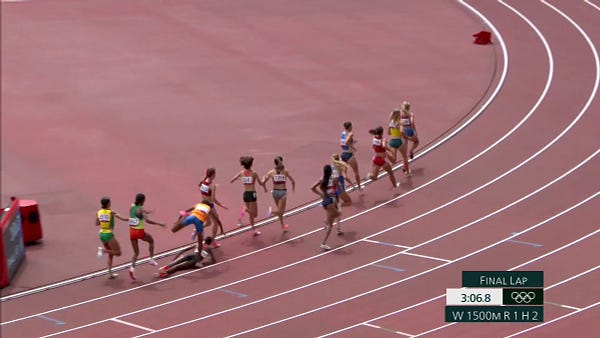
Another Castellanos’ moment?

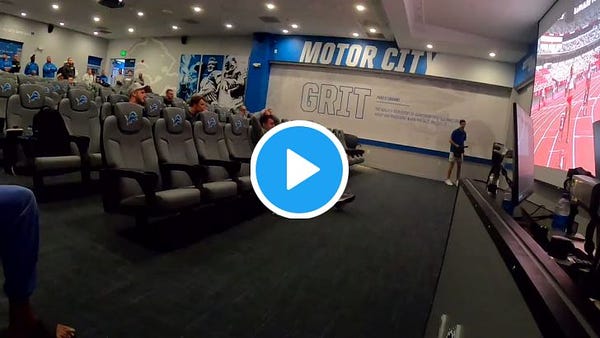
The PGA Tour is distancing itself from Saudi money:





